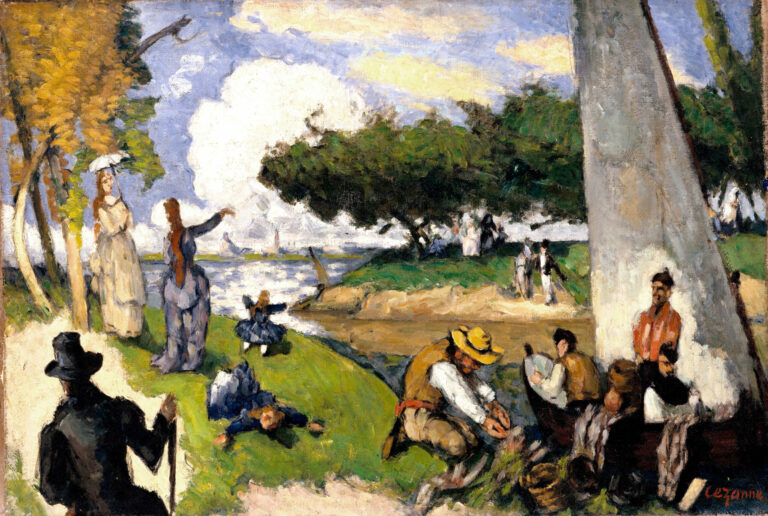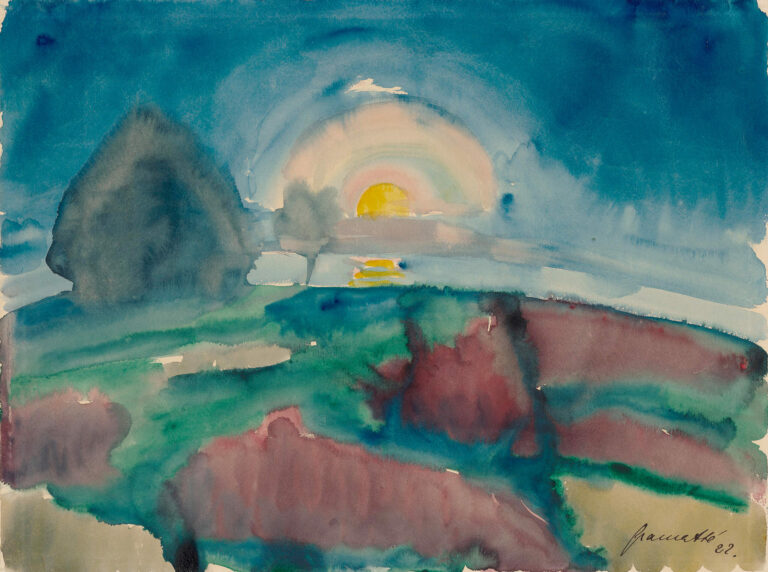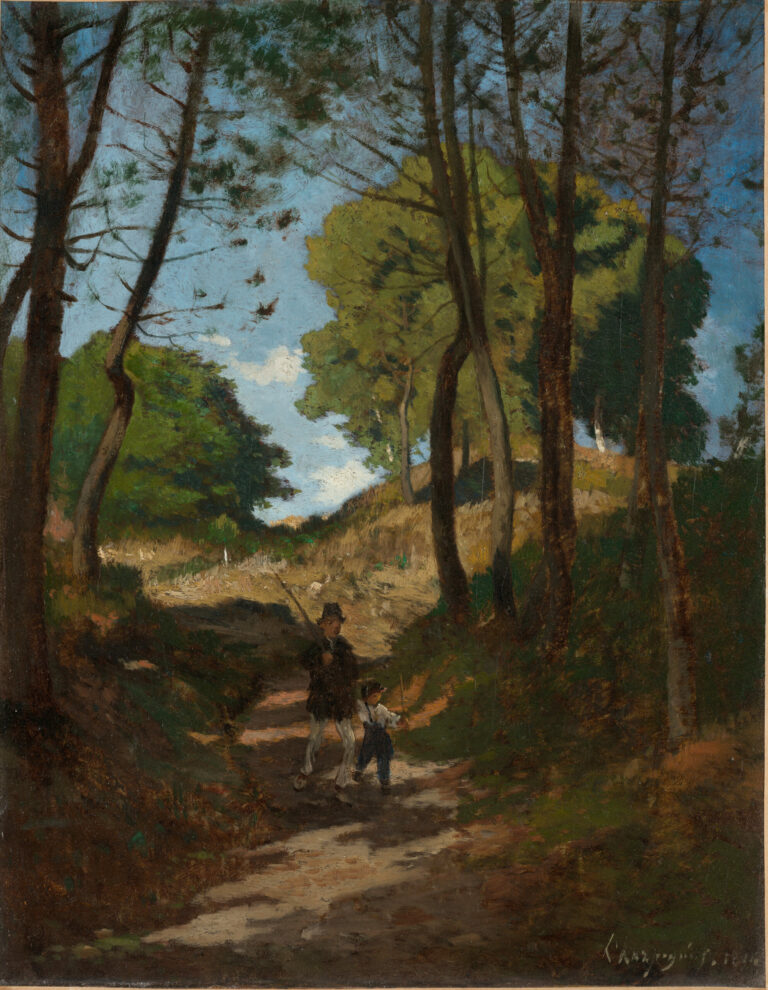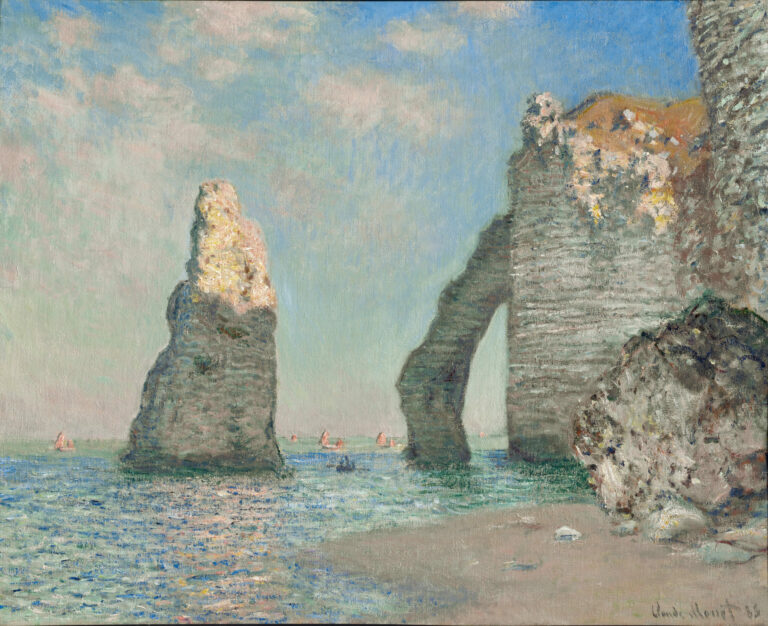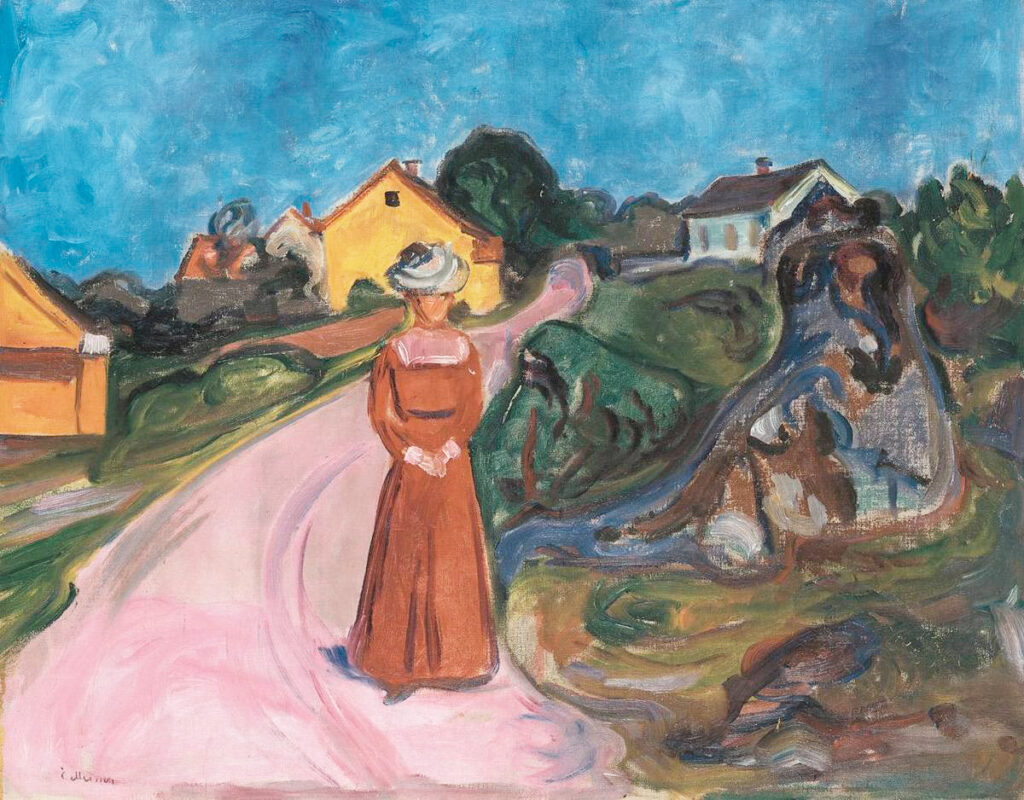
This Woman in Red Dress (circa 1902-1903) belongs to a pivotal period in Edvard Munch’s work when psychological Expressionism reached its stylistic maturity.
The composition reveals a mastery of chromatic and emotional correspondences: the solitary female figure, elevated by her red dress, asserts itself vertically against a landscape with organic undulations. Munch employs his characteristic technique of sinuous brushstrokes that transform the Aasgaardstrand setting into an expressive arabesque. The palette, dominated by the dark tones of the landscape and the midnight blue of the sky, creates a melancholic atmosphere punctuated by the warm notes of yellow and turquoise facades. The deserted street amplifies the existential isolation of the figure. This work bears witness to the painful breakup with Tulla Larsen during the summer of 1902, a period when the artist transposed his intimate traumas, establishing the foundations of modern Nordic art.
Further information
- Edvard Munch, Woman in Red Dress (Street in Aasgaardstrand), c. 1902-1903
- 59.7 × 75.5 cm
- Neue Pinakothek, Munich, Bavarian State Painting Collections
- https://www.sammlung.pinakothek.de/en/artwork/XR4MmO04Q1/edvard-munch/frau-im-roten-kleid-strasse-in-aasgaardstrand
Edvard Munch (1863-1944) remains one of the tutelary figures of modern European art. Born in Løten, Norway, marked from childhood by family death and illness, he developed a visionary Expressionism that transcended national borders. Munch forged his unique pictorial language by blending Symbolism with depth psychology. His famous series “The Scream” (1893) revolutionized Western art by materializing modern anxiety. Living alternately between Norway, Berlin, and Paris, he had a lasting influence on the European avant-garde. His summer stays in Aasgaardstrand, a small Norwegian port, nourished a prolific body of work where landscape and introspection merge. Having bequeathed his entire œuvre to the city of Oslo, Munch left behind a substantial corpus, a striking testimony to the modern human condition.

